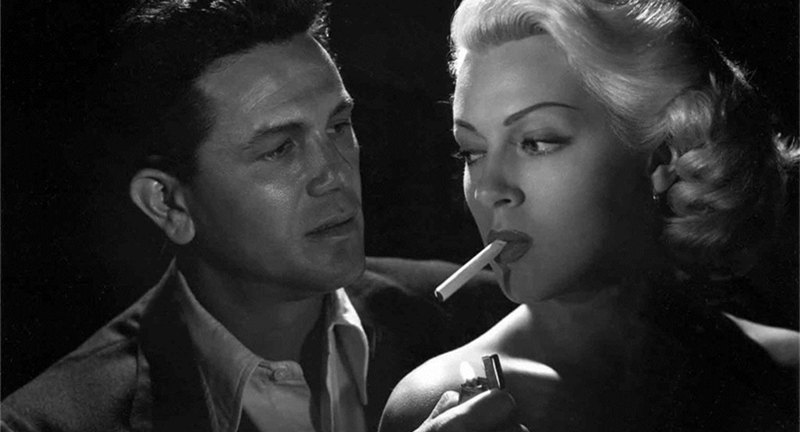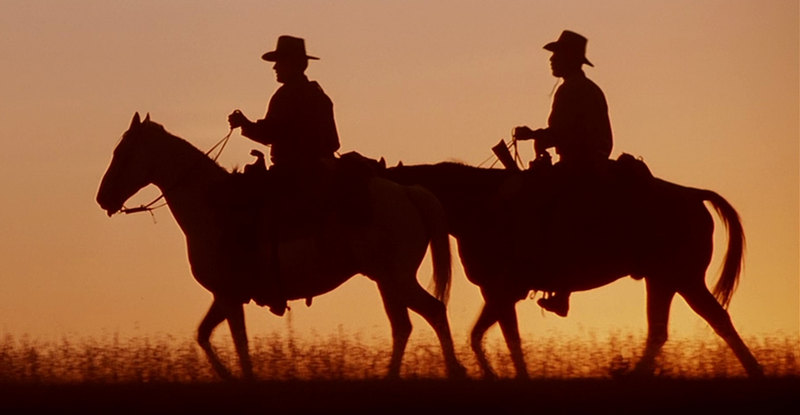Fairy tales. When we’re young we believe in them, until we realize that, in real life, the dragon isn’t always slain, and a frog that’s kissed is all too often just what he appears: a fat old croaker. But every now and then something like this small but enchanting film from John Carney comes along to remind us that while the castle is still an impossible dream for commoners, there are still plenty of smaller happily-ever-afters to be had.
“Once” feels like one of life’s captured moments–a slice of kismet where you just happen to be in the right place at the right time to witness a marvel of nature, an act of tenderness, or a stream of light bestowing its benediction on a landscape you pass every day but otherwise fail to notice.
If “The Commitments” shows the gritty, robust side of Dublin and the Irish music scene, “Once” shows us a softer, more romantic side. According to the writer-director, the title comes from a popular line spoken by talented but unmotivated artists: “Once I get enough money together, I’m going to go to Paris and write.” “Once I get me mum out of the house I can concentrate on my music more.” “Once things settle down at work I’m going to find more time to paint.” Once . . . .
But “Once” could also be short for “Once upon a time,” because this really does feel like a small fairy tale romance. When a talented but stuck-in-a-rut-and-going-nowhere Dublin guitar player meets a young woman immigrant who just happens to be a keyboardist, they both recognize an immediate connection and start making beautiful music together. If this were a full-blown romance or romantic comedy, the boy would get the girl, lose the girl, and then get the girl back again. But that’s not what happens here, and the result is a much quieter and more original slice-of-life that has a more profound resonance.
Writer-director Carney doesn’t even give names to his characters, which suggests that we’re supposed to see them as fairy-tale types. Glen Hansard, who played the guitarist in “The Commitments,” is a folk-rock musician here who belts out soulful songs in the street, knowing he’s better than that but relegated to his street status. Along comes a 17-year-old Czech girl selling flowers who appreciates his music and encourages him. For a struggling, martyred, unappreciated musician, can it get any better than that? Surprisingly, yes, because the “girl,” as she’s listed in the credits, turns out to be a talented musician herself. She plays classical piano, and they go to a music shop where each can take turns showing what they can do separately, and together. This IS a love story, but it’s a love-of-music story.
Before you know it, the “guy” is spending more and more time with her. They gravitate toward each other, partly because each is in relationship limbo—he, because his girlfriend didn’t appreciate his music, cheated on him, and went to London, and she, because her estranged husband and the father of her daughter is still in the Czech Republic. There’s the opportunity here for romance, and romance does indeed happen in a very subtle way . . . but it takes a backseat to the music that drives this film. Everything does.
Carney filmed this little gem in just 17 days, and perhaps it’s a good thing that he hired Hansard, who’s known in Ireland as the lead singer of the Frames, and Marketa Irglova, who herself is a musician, not an actor. In them, he gets two people who aren’t conscious of their acting. They’re fresh, they’re wonderful to look at, and they’re what their characters are: two musicians who love music so much that it’s easy to form a bond with someone who feels as they do. And the soundtrack is really something. From the song they try to cut in a studio (“When Your Mind’s Made Up”) to the ballad that describes the feelings that emerge in this guy and girl (“Falling Slowly”), the songs seem as genuine as the rest of the film.
That’s because Hansard wrote most of the songs and performs them alone or with Irglova and other musicians. Because they’re so passionate, we begin to see the music through their eyes, and that’s an unexpected gift. We can also see the affectionate bond forming between them, and wonder where or how it’s going to end. What will happen if they ever do cut a demo? With the ex-girlfriend? The estranged husband?
It’s no wonder that “Once” won the World Audience Award at the Sundance Film Festival. It’s a love story that involves the audience every bit as much as the characters. We begin to love them and we begin to love music—perhaps not as much as they do, but once . . . .
Video:
“Once” is an indie film shot on a shoestring budget. It looked rough in standard def, but this AVC/MPEG-4 transfer really spruces it up. There’s still a slight graininess to complement the hand-held camera work, which adds a level of intimacy to an already intimate story, as do occasional out-of-focus shots that add to the voyeuristic sense that we’re watching what could pass for a homemade documentary crafted by one of the musician’s friends. “Once,” which is rated “R” for language (are you kidding me?), is presented in 1.85:1 aspect ratio and stretched to fill the screen. At this writing, “Once” is only available on Blu-ray as an Amazon exclusive.
Audio:
The audio has been nicely cleaned up so that the English DTS-HD MA 2.0 does more justice to the music than the DVD. In fact, the Blu-ray is like listening to the music on the big studio playback speakers, while the DVD is more like hearing it on a crappy car stereo, to use the film’s own analogy. It’s a huge step up from the previous DVD release. Spanish Dolby Digital 2.0 Surround is the only other audio option, with the same subtitles—English SDH, French, and Spanish—as on the DVD.
In many scenes you can hear more ambient street noise than you normally do with a big-budget film—a reminder that we’re watching something reportedly shot on only $150,000 euro. Outdoor scenes were filmed from far-off so as not to create any sense of artificiality. In fact, there’s one scene where a bloke swipes the guy’s guitar case with tips inside and runs away with it, and we learn on the commentary track that a passer-by thought it was real and kneed the actor in the groin.
Extras:
Yes, the commentary track with Carney and his two stars is worth a listen. You find out just how committed they were to this little film, and how it came together in such a surprising way. They still seem shocked that it’s produced the response that it has. There are two featurettes, “Making a Modern Day Musical” and “More Guy, More Girl” that show the stars again and some behind-the-scenes shots of the filming. Both are slighter than the commentary track but still enjoyable, if nothing else to see more footage of Dublin and get a sense of just what it was like to film this little indie gem. Rounding out the extras is an animated stick-drawing Webisode featuring one of the songs, “Broken Hearted Hoover Fixer Sucker Guy.”
Bottom Line:
“Independent” isn’t a synonym for “great.” Reviewers have to slog through an awful lot of disappointing or downright terrible indie films before discovering one like this. “Once” is a warm, tender and revealing journey that’s six parts music and four parts slice-of-life. The stars are wonderful, and the director is smart enough to know he has a strong enough story that can practically tell itself. And so he stands back and lets it happen. The result is a modern-day fairy tale that challenges our notion of happy endings.


